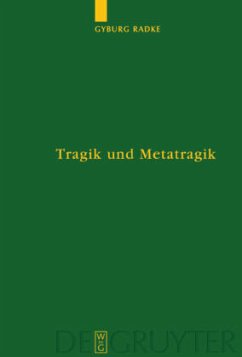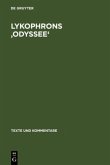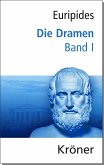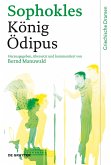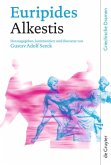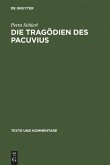The author reads the Bacchae in the framework of a complete textual interpretation as a "textbook example" of a tragedy evoking fear and pity in the Aristotelian sense. She sees the tragic quality of the action in the connection between the individual character of the protagonist Pentheus and his failure. Radke draws her conclusions from a critical application of modern methods of literary criticism to a Greek tragedy. In this way, the classical theory of tragedy is again placed centre-stage as an alternative model.
Worin liegt die Tragik der Bakchen des Euripides? - Eine heute dominierende Forschungsrichtung meint: in der reflexiven Selbstthematisierung der Gattung Tragödie und des Mediums Theater. Das Auftreten des Theatergottes Dionysos bedeutet, im Sinn dieses strukturalistischen Ansatzes, die Erhebung der Tragik der Bakchen zur Metatragik.
Die hier vorgelegte Untersuchung stellt durch eine allgemeine hermeneutische Reflexion auf die Prämissen der Anwendung strukturalistischer Methoden und durch eine vollständige Textinterpretation der Bakchen eine Gewinn- und Verlustbilanz metatheatralischer Deutungen auf. Sie liest die Bakchen als Gegenthese dazu als 'Schulbeispiel' einer Furcht- und Mitleidtragödie, in der der Zusammenhang zwischen dem individuellen Charakter des Protagonisten Pentheus und seinem Scheitern die tragische Qualität der Handlung ausmacht.
Worin liegt die Tragik der Bakchen des Euripides? - Eine heute dominierende Forschungsrichtung meint: in der reflexiven Selbstthematisierung der Gattung Tragödie und des Mediums Theater. Das Auftreten des Theatergottes Dionysos bedeutet, im Sinn dieses strukturalistischen Ansatzes, die Erhebung der Tragik der Bakchen zur Metatragik.
Die hier vorgelegte Untersuchung stellt durch eine allgemeine hermeneutische Reflexion auf die Prämissen der Anwendung strukturalistischer Methoden und durch eine vollständige Textinterpretation der Bakchen eine Gewinn- und Verlustbilanz metatheatralischer Deutungen auf. Sie liest die Bakchen als Gegenthese dazu als 'Schulbeispiel' einer Furcht- und Mitleidtragödie, in der der Zusammenhang zwischen dem individuellen Charakter des Protagonisten Pentheus und seinem Scheitern die tragische Qualität der Handlung ausmacht.

